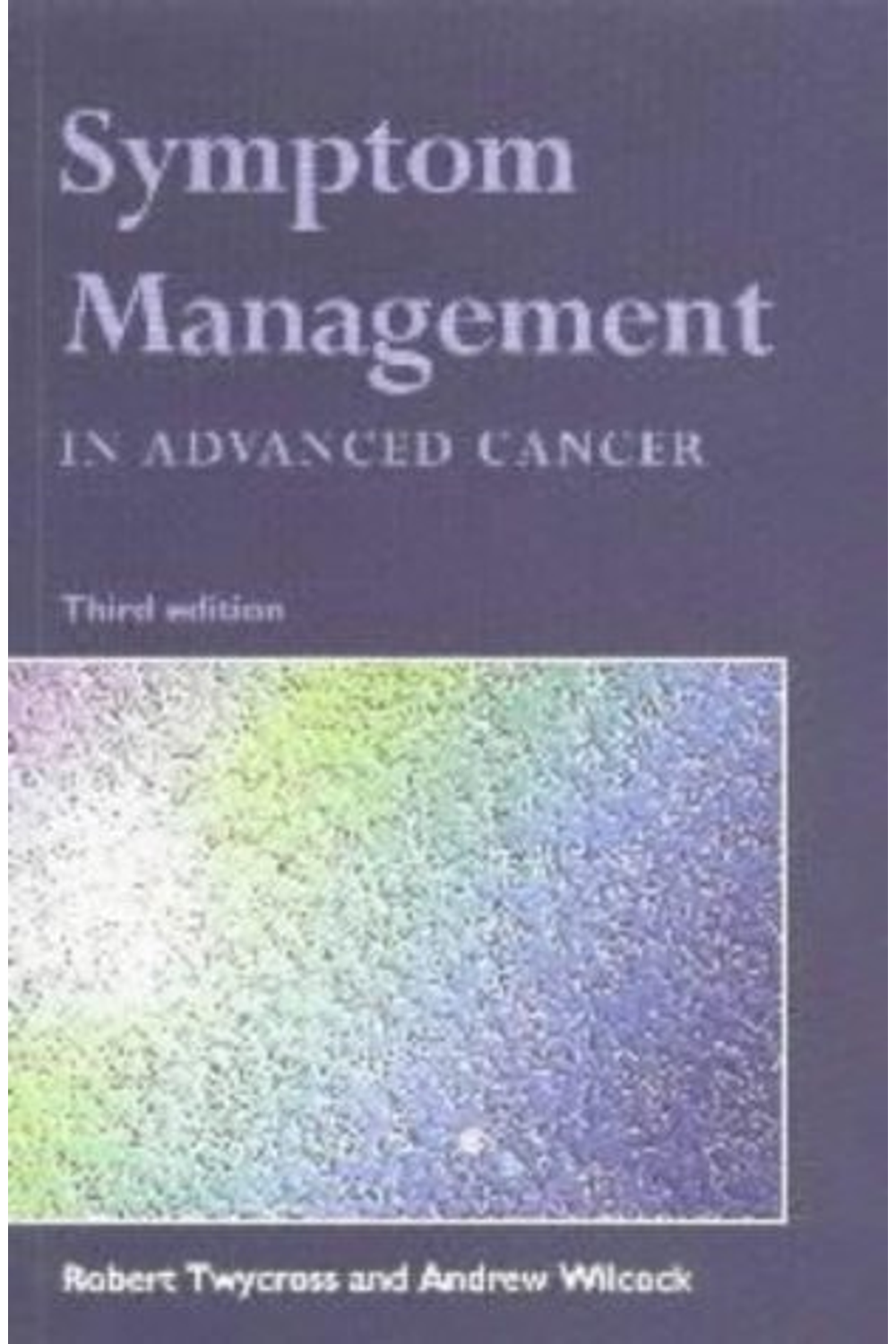**Symptom Management in Advanced Cancer, 3rd Edition: Your Essential Guide to Compassionate Cancer Care** Navigate the complexities of advanced cancer care with this definitive resource, “Symptom Management in Advanced Cancer, 3rd Edition,” by renowned palliative care experts Robert G. Twycross and Andrew Wilcock. This book isn’t just a medical textbook; it’s a roadmap to providing holistic, evidence-based comfort and improved quality of life for patients facing challenging symptoms. While many books list symptoms and treatments, this edition, building on Twycross’s pioneering work, delves deeper into the *why* behind each symptom, giving you the power to create truly individualized care plans. Discover practical strategies for managing pain, nausea, fatigue, and psychological distress, plus cutting-edge guidance from the new chapter on clinical guidelines. Benefit from the authors’ unparalleled expertise: Robert Twycross, a leading figure in palliative medicine and WHO Collaborating Centre Director, alongside Andrew Wilcock, a seasoned oncologist and palliative care specialist. This powerful combination gives you a wealth of knowledge at your fingertips. Perfect for students, doctors, nurses, and caregivers seeking a scientifically sound yet practical guide to providing compassionate cancer care. This third edition equips you with the tools to reduce suffering and empower patients in their journey. Includes helpful tables, charts, and abbreviations for quick and easy reference.
Symptom Management in Advanced Cancer
20,50 $
In stock
Robert Twycross and Andrew Wilcock , respectively Macmillan Clinical Reader in Palliative Medicine, University of Oxford, Consultant Physician, Sir Michael Sobell House, Director, WHO Collaborating Centre for Palliative and Cancer Care; Macmillan Senior Lecturer in Palliative Medicine and Medical Oncology, University of Nottingham, Consultant Physician, Hayward House Macmillan Specialist Palliative Care Unit, Nottingham Hospital NHS Trust Symptom Management in Advanced Cancer has become an established text showing doctors and carers how to provide a high level of physical and psychological comfort. This new edition has been updated and expanded, incorporating a new chapter on clinical guidelines. It offers practical information and advice on controlling the range of symptoms that students and experienced healthcare professionals in cancer care encounter daily, and provides a framework of knowledge enabling the clinician to develop a scientific approach to managing symptoms. It is illustrated with colour plates and includes guidance on common abbreviations, charts and tables for easy reference.
| Authors | |
|---|---|
| Binding | |
| Condition | |
| ISBN-10 | 1857755103 |
| ISBN-13 | 9781857755107 |
| Language | |
| Pages | 415 |
| Publisher | |
| Year published | |
| Weight | 1023 |
| Edition | 3 |
Related products
- Additional information
- Currencies
- USD – United States dollar
- EUR – Euro
- GBP – Pound sterling
- CNY – Chinese yuan
- BRL – Brazilian real
- MXN – Mexican peso
- JPY – Japanese yen
- PHP – Philippine peso
- THB – Thai baht
- PLN – Polish złoty
- CAD – Canadian dollar
- MYR – Malaysian ringgit
- AUD – Australian dollar
- TWD – New Taiwan dollar
- CZK – Czech koruna
- SEK – Swedish krona
- HUF – Hungarian forint
- ILS – Israeli new shekel
- CHF – Swiss franc
- HKD – Hong Kong dollar
- DKK – Danish krone
- SGD – Singapore dollar
- NOK – Norwegian krone
- NZD – New Zealand dollar




![Adam Kay Collection 3 Books Set (Twas The Nightshift Before Christmas [Hardcover], This is Going to Hurt Secret Diaries of a Junior Doctor, [Hardcover] Kays Anatomy)](https://www.ubucuu.com/wp-content/uploads/9781509858637-6-350x525.png)
